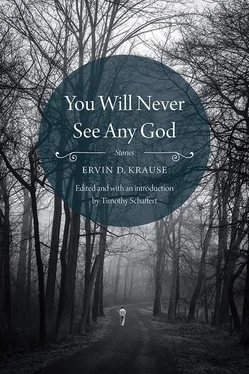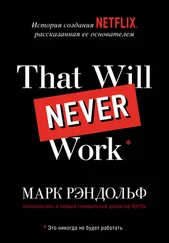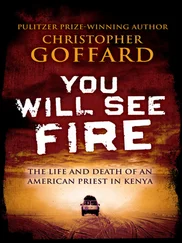“It was some fire,” one of the brothers said. “You should have been there to see it.”
“It was terrible,” the father said.
“I was studying my catechism,” the boy said.
The brother brought the news of the killings even before dawn; he had been in to Charleston to deliver a butcher hog to the locker plant for slaughtering that day, and had run into Gavin Terrell, the young town marshal, his friend, and had heard of it — how the whole family up by Craig, not ten miles away, Jung he believed their name was (it would be on the news pretty soon), was shot to death by.22 rifle, the father of past forty, the wife, the eighty-two-year-old mother-in-law, the eleven-year-old boy, and the young hired man to boot, all shot and dumped like sacks of potatoes into the entrance of the storm cellar. Done the day before, the previous afternoon, the coroner had reported.
The brother spoke carefully, looking at the mother who was old and suffered from high blood pressure, wanting not to frighten her, but better to tell her now than wait for the hysterical news reports.
“Na, na,” the mother said, “has the world gone crazy?” She sat at the kitchen table and rubbed the top with a wet cloth, preparing it for breakfast with elaborate care, as she did every day. “Why would anybody do such a thing? Crazy, that’s what.”
The brother shrugged.
“Do they know who did it?” Leonard’s wife asked.
“No. Of course not,” Leonard said, looking to the brother for verification.
“I’ll bet it was a neighbor,” the brother, Melvin, said. “Went off his head. Probably mad about something. Some of these neighbor troubles go back for years.”
“It’s common enough nowadays, people being crazy,” the mother said. She began to tell of the farmers and wives who had needed psychiatrists in recent years, or had been sent up to Cherokee for a time, all from that area alone.
The young wife frowned above the frying pans on the kitchen stove where she stood preparing their early breakfast. “Do you suppose it’s really just a neighbor who went mad? Or somebody on the loose? Somebody who’s a killer? It seems so terrible for someone to kill five people. Just a neighbor couldn’t do that, I would think.”
The brothers looked at each other. Melvin, the farmer, cap on, wrestled with his hands. “Whoever it was, they’ll catch him today. Might have got him already, as far as anybody knows.”
“And how many were there?” the mother asked, rubbing carefully in circles on the smooth artificial table top.
“Five. Even the hired man, a kid of seventeen. Stayed there overnight because of haying. He didn’t even belong there.”
“Why would a neighbor take him too? I mean if it were a neighbor doing the shooting? Why the kid too?” Leonard asked.
There was a pause, a reflective moment, and the brother thinking of this new aspect that had not occurred to him.
“Yeh,” he muttered, not wanting to say more.
“It’s somebody crazy is all,” the old mother said, finished then with the table, arising and going to the sink, collecting potatoes in a gray enameled pan, and the knife, sitting down again and beginning to peel them for the noon meal, their dinner.
“Are you going to Sioux City today?” Melvin asked.
“Yes. Every day. You know that,” Leonard said. Every day since the discovery, in mid-visit to the Iowa farm where his old mother and brother lived, of cancer, and the necessity of going to Sioux City for radiation treatments, six minutes each day beneath the Cobalt-60 machine. He borrowed his brother’s car each day for the thirty-four-mile trip, an hour and a half gone and back.
“You going this morning or this afternoon?” Melvin asked. Leonard looked to his wife. She lifted eggs and bacon from the skillet, tested cornbread in the oven, put that out too. No sign from her for a preference.
“This afternoon,” Leonard said.
Melvin nodded. “Okay,” he said. “Gavin wanted me to come into town this morning. To help out.”
Leonard nodded, understanding him.
“You’ll be around here all morning?” Melvin asked.
“Yes,” Leonard said, knowing his brother was aware of the danger, wanting to protect the farm and the mother from being alone.
All that morning Leonard and his wife and his mother worked in the garden, not with the old mean labor that he had given when he was a boy, twenty years ago, but rather with an easy pleasantness that came from doing work that one didn’t feel compelled to do; they set out tomato plants and weeded the strawberries. There were already many strawberry blossoms, fragile and white.
At noon sharp, Melvin was back.
“Well, did you and Gavin nab the killer?” Leonard asked. Melvin shook his head, grinned. “Nope. There’s a story they got somebody up at Spencer. But nobody’s sure yet, and Gavin doesn’t believe it.”
At one o’clock they went to Sioux City. No, the mother did not want to go along. “Ooph, I’m not feeling so good today,” she said, Leonard thinking she was only begging off to have her afternoon nap. They drove the new highway, thirty-four miles in thirty minutes, went in to see the sleepy radiologist who muttered of palliation. “Are you feeling all right now?”
“Yes,” Leonard said.
“No back pain anymore?”
“No.”
“He gets tired very easily,” the wife said.
“Yes. That’s bound to happen,” the radiologist said, and gave a stricken yawn, trapped it partially between throat and chin. “That’s caused by the radiation. But your back pain has gone away?”
“Yes.”
“Good. Good.”
They, the sleepy doctor and the robust nurse, took him through the heavy lead door and lay him on the cot, rolled him beneath a streamlined bullet-shaped machine that said “Eldorado” on it.
“Only two more treatments on your side and then we radiate your neck,” the doctor said. “That will suppress the growth, and give palliation for a good long time.”
The thought of time, any time, gave him a chill, how the bored doctor could talk easily of a “good long time” when he knew it could not be more than three years at the most for him, this doctor who could easily yawn away three years of his own life without even thinking about it.
Leonard did not say anything. He lay still, as he should, looked up at the perforated squares on the ceiling, lay silent in the air-conditioned comfort of the lead-in room. The red light came on after the radiologist and nurse exited to the safety of their control booth, the machine above him thukked and a little complacent hum of the machine began, as of a digestive process deep within it. He contemplated lying there, and of the discovery three weeks before of the malignant cancer in him, not localized, spread already with unseemly haste, and where the doctors had at first talked confidently of energetic treatment and suppression, now their lips could manage murmurs of only “palliation,” an unforgivable word to him, absolutely a devilish word to him at thirty-three. Palliation and defeat, and nothing to be done, oh the best doctors agreed, there was nothing else to be done, for “it” had already spread beyond localized bounds, and what was there now to do but palliate and wait?
He waited the six minutes, felt nothing but the hard cot beneath him, heard nothing but the mystery of the tiny hum, looked at the perforations, little holes in the ceiling, clean as if made by tiny bullets, and the efficient gamma rays burned into his bowels, warmed his kidneys, all unfeeling. The curved machine thukked exactly on time, the red light went out, the nurse forced open the heavy door and came in smiling, wheeled him from under.
In somber quiet, as usual now on this, the eighteenth trip to and from radiation, they shot the thirty-four miles back to Charleston, needed nothing in the little town, saw Gavin Terrell camped strategically in the police car at the edge of town, waved to him. Gavin waved back, smiled.
Читать дальше











